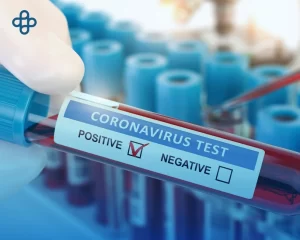Multiple Sclerosis: Prevention Strategies. The infection is incidental. However, experts have concluded that maintaining adequate levels of vitamin D. And avoiding tobacco are two effective ways to prevent multiple sclerosis and control the progression of the disease.
Multiple sclerosis (MS) is a chronic disease whose causes are unknown, therefore, it cannot be prevented. However, some tips will help alleviate its symptoms and improve your quality of life.
Changes in your lifestyle
If your trusted doctor has already diagnosed you with MS. These general care and lifestyle changes will help you control symptoms and feel better.
First, provide the healthcare team treating your MS with the necessary information. So they can prepare a program that fits your lifestyle and expectations. Informing them whether you work or not, if you are an active person, or even if you are considering getting pregnant. In the case of women, can be key data that will determine the care you need.
Stay active.
Regular exercise will help keep your muscles loose, sleep better, improve balance, and regulate bowel movements, among other benefits.
So, consult with your doctor or specialist about which exercises best suit your physical condition to maintain constant activity.
Eat healthy and make sure your diet is balanced and appropriate for your age and level of activity. Remember that maintaining good nutrition is always beneficial, even if you are a healthy person. Maintain a positive attitude.
Fatigue and sometimes depression
MS causes fatigue and sometimes depression, so try to maintain a positive attitude and be prepared for when these difficulties arise. You must bear in mind that the progression of MS and its symptoms can vary from person to person: while some people have very little progression and their disease progresses slowly, in others, the progression of the disease is more severe and rapid.
Therefore, each case will require specific care. Keep in mind for multiple sclerosis prevention In medicine, there is a basic principle: prevention is better than cure. This axiom is logical and we are all used to it. Vaccines or the promotion of healthy lifestyles are good examples of this.
The problem arises when we do not know the origin of the disease. Unfortunately happens in the case of Multiple Sclerosis Prevention.
Genetic predisposition – Multiple Sclerosis: Prevention Strategies
It is currently accepted that to develop MS. It is necessary to be born with a genetic predisposition, but also environmental factors are essential. However, identifying these ‘risk’ environmental factors could be a good opportunity to modify them to try to prevent and delay the onset of the disease.
For years we have known that the risk of developing MS is lower in areas close to the equator and increases as we move away from it. But until recently, we had not even glimpsed what these environmental factors were.
Fortunately, we have begun to see signs that allow us to establish search strategies to identify these ‘MS risk factors’.

The proportion of affected women is increasing.
The fact that in recent years the incidence of MS and the proportion of affected women are increasing and that the age of onset of MS is decreasing must be due to recent changes in our lifestyle and/or environment: diet, hygiene, health care, customs, etc.
Many of these changes could explain other facts, such as the progressive increase in people’s height or the increase in allergic diseases. This temporal proximity makes the search hopeful in terms of its results.
Other relationships with the risk of developing MS have also been found, such as the hours of sun exposure during gestation. Contributions have been made regarding the importance of certain infectious agents in the origin of this disease.
Multiple Sclerosis Prevention Multiple sclerosis: immunopathology and treatment update.
MDPI published Multiple Sclerosis. Immunopathology and Treatment Update which it states:
“We return to the fundamentals to understand the immunohistology of MS and thus obtain information for the development of new improved pharmacological treatments. We present current disease-modifying therapies (interferons, glatiramer acetate, dimethyl fumarate, teriflunomide, fingolimod, and mitoxantrone). Humanized monoclonal antibodies (natalizumab, ofatumumab, ocrelizumab, alemtuzumab, daclizumab). And new immunomodulatory approaches (stem cells, DNA vaccines, nanoparticles, altered peptide ligands) for the treatment of MS”.
If you want to learn more, visit our article on What Are Stem Cells?





